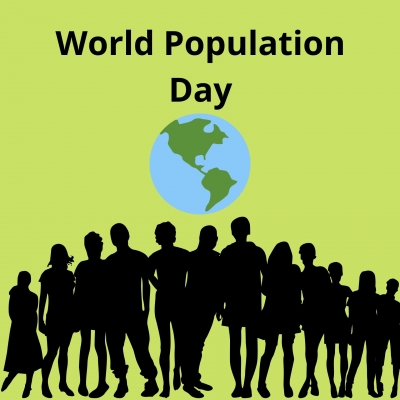
Depletion of natural resources
Quite expectedly, the first casualty of an increasing population is the planets natural resources. There’s only so much amount of water and food that Earth can produce at any given time whereas the number of people utilising these is constantly increasing. So, we clear out forest lands to turn them into agricultural lands, and require more water because the agricultural land parcels to tend to are increasing too. In addition to food, we use up natural resources for several other aspects of everyday living while also polluting the planet. This increasing human need (and greed) is inversely proportional to the resources available, leading to faster climate change.
Conflicts
When natural resources deplete, the need to control or own whatever is left becomes strong. This is especially true of water. In our own country, we have witnessed conflict between States over sharing of water. In fact, sociologists suggest that unresolved issues over resource sharing can even lead to violence and eventual loss of human lives. Seen in this context, the fear among people that future global wars will be fought over water and energy resources may not be entirely misplaced.
Inequality
When a huge population fights over limited resources, it is invariably the powerful that wins. Meaning, people with money or power (or both) find ways of obtaining what they seek. Such a move leads to high cost of living, which not everyone can manage. This clearly indicates a divide in society, and this is one of the major reasons for issues such as poverty, unemployment, lower life expectancy, human rights violation, and lack of access to education, healthcare, and hygiene, among others.
Epidemics and pandemics
When the space on the planet is finite but not the population inhabiting it people are forced to live together in smaller places. This is particularly true of people from economically weak backgrounds. While already living in unhygienic conditions and without proper access to healthcare, the chance of spread of infections among such populace becomes higher. Further, with the space for wildlife shrinking drastically, the chance for infection in animals and birds getting transmitted to humans too increases These are among the important reasons for the increase in the number of epidemics in the last few decades. While the exact origin story of the on-going COVID-19 pandemic is not clear yet, scientists warn that this one may not be the last one.
How can we tackle the issue?
One of the most important things to do is to educate people. Educating people on the need to be mindful when it comes to using resources is vital. When an individual chooses a need-based life, it offers many others a chance at a better life, and could eventually end poverty, human rights violation, unsustainable resource depletion, etc. In this regard, education for women holds greater promise because it will play a crucial role in ensuring they are the decision makers when it comes to the matter of having children. Every couple must be educated on family planning to decide on the number of children that they can raise sustainably.
DID YOU KNOW?
Around the beginning of the 19th Century, the world population was one billion. It took another 123 years to touch the second billion, but gradually the duration has decreased. We reached seven billion in 2011 from six billion in 1999-just 12 years! And, today, we stand at over 7.8 billion.
Picture Credit : Google




